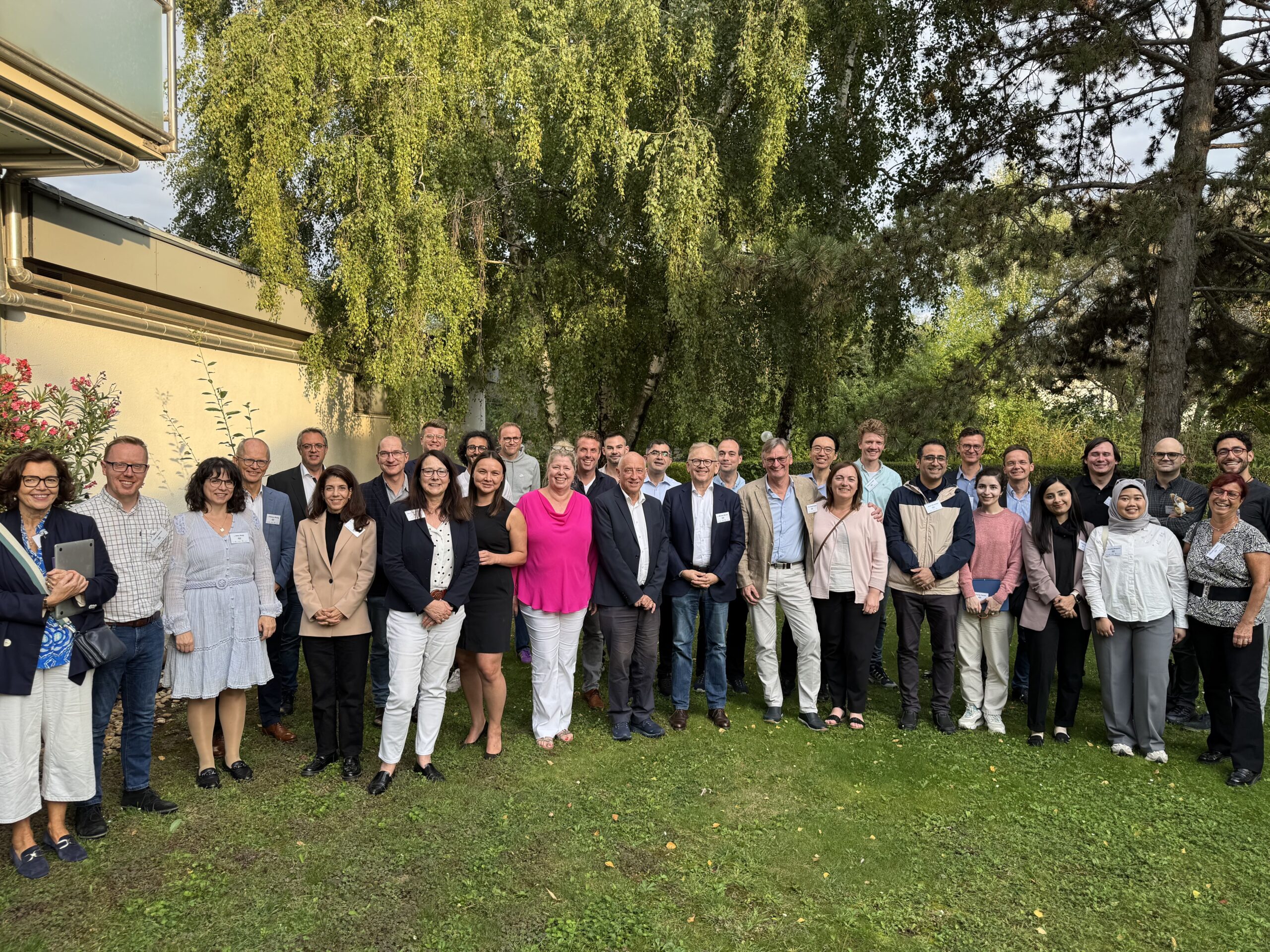Type 2 diabetes often goes unnoticed for a long time—with consequences. This is because permanently elevated blood sugar values in prediabetes or diabetes damage blood vessels and organs: Heart attacks, strokes, and kidney failure are therefore among the most common complications. Research is therefore increasingly focusing on organ crosstalk—i.e., the interaction between the kidneys, heart, and metabolic organs such as the liver. In medical practice, however, the emphasis has so far been more on the heart than on the kidneys. At a two-day international conference at Lake Neusiedl in Austria on September 12 and 13, 2025, more than 30 leading scientists from Europe, the USA, and Australia argued in favor of considering these organ systems together. The event was organized by DZP partner, the German Diabetes Center (DDZ), together with Monash University in Melbourne, Australia.
In Germany, more than 8.9 million people live with type 1 and type 2 diabetes. Heart attacks and strokes have long been regarded as the greatest risk—accordingly, prevention programs and therapies focus heavily on the cardiovascular system. On the other hand, attention is often paid to the kidneys too late on: Many cases of damage remain undetected because simple urine and blood tests are still carried out too rarely in everyday life. However, the scientific data is clear: Even modest restrictions in kidney function significantly increase the risk of heart failure or heart attacks. Conversely, heart problems accelerate kidney disease.
Prevention and Treatment Should Start Earlier
“Diabetes, kidney, liver, and heart disease are interlinked—they form a system that should no longer be viewed in isolation,” emphasizes Prof. Michael Roden, scientific director and spokesman of the board of directors of the DDZ and director of the Department of Endocrinology and Diabetology at the University Hospital of Düsseldorf. “If we understand these connections, we can protect affected individuals at an earlier stage and reduce the risk of heart attacks, strokes, or kidney failure,” explains Dr. Jaroslawna Meister, deputy head of the Research Group Nephropathy at the DDZ. She and Prof. Karin Jandeleit-Dahm, head of the Research Group Nephropathy at the DDZ and deputy head of the Department of Diabetes at Monash University in Australia, organized the conference.
In a 2023 statement, the American Heart Association (AHA) described precisely this close interplay as “cardiovascular-kidney-metabolic (CKM) syndrome”—and recommended a tiered system for earlier and more targeted prevention and treatment.
At the Conference: Research Findings from Around the World
The two-day conference took up this concept and presented new ways to reduce the risk of heart and kidney damage in diabetes.
MASLD as a Key Factor: Prof. Michael Roden (DDZ, Düsseldorf) showed how closely the metabolic disorder MASLD (formerly known as non-alcoholic fatty liver disease) is linked to diabetes and complications—and why its treatment is crucial to also protect the heart and kidneys. The approval of new drugs for the treatment of MASLD could improve the care of people with MASLD/MASH.
Lipids and Inflammation: Prof. Thomas Stulnig (Hietzing Clinic, Vienna) explained how signaling molecules from lipid metabolism contribute to the development of inflammation, cardiovascular complications, and kidney disease in diabetes. He also presented new therapeutic concepts for the treatment of lipid metabolism disorders, which can also reduce the risk of complications of diabetes.
Improving Early Detection: Prof. Ronald Ma (Chinese University of Hong Kong) presented new epigenetic biomarkers from the Hong Kong Diabetes Registry that have the potential to predict kidney disease in type 2 diabetes much earlier and improve the assessment of kidney disease risk in people with type 2 diabetes.
New Therapies and Studies: Prof. Peter Rossing (Steno Diabetes Center Copenhagen) presented the Steno 1 study. This is the first study to examine the effects of combined treatment with modern drugs in people with type 1 diabetes and a high risk of complications. The aim is to prevent serious cardiovascular events, heart failure, and kidney disease more effectively.
Weight Reduction Protects the Kidneys: Prof. Petter Bjornstad (University of Washington, Seattle) demonstrated that chronic kidney disease is particularly common among young people with obesity and type 2 diabetes. Bariatric surgery can not only significantly reduce weight in this group, but also stabilize kidney function.
Conference organizer Prof. Jandeleit-Dahm emphasizes: “Only through improved cooperation between international experts can we better understand the mechanisms of CKM syndrome and the crosstalk between the different organs. This is crucial in order to develop more effective treatment and prevention strategies. This was precisely the aim of our meeting.”
Note: The meeting was funded by DDZ, DZD, AstraZeneca, Novo Nordisk, and Boehringer Ingelheim. The DDZ would like to thank all sponsors.

